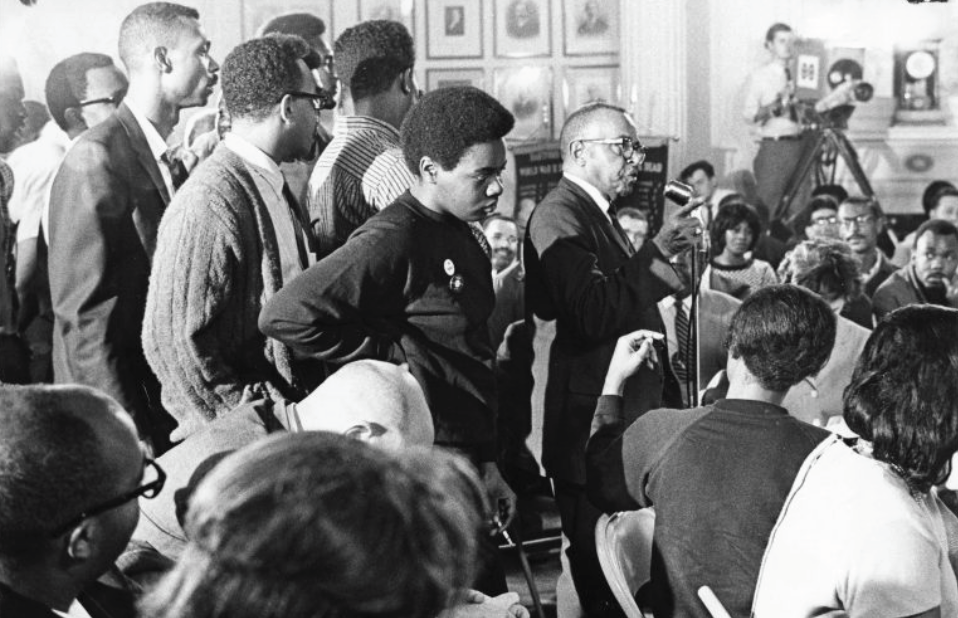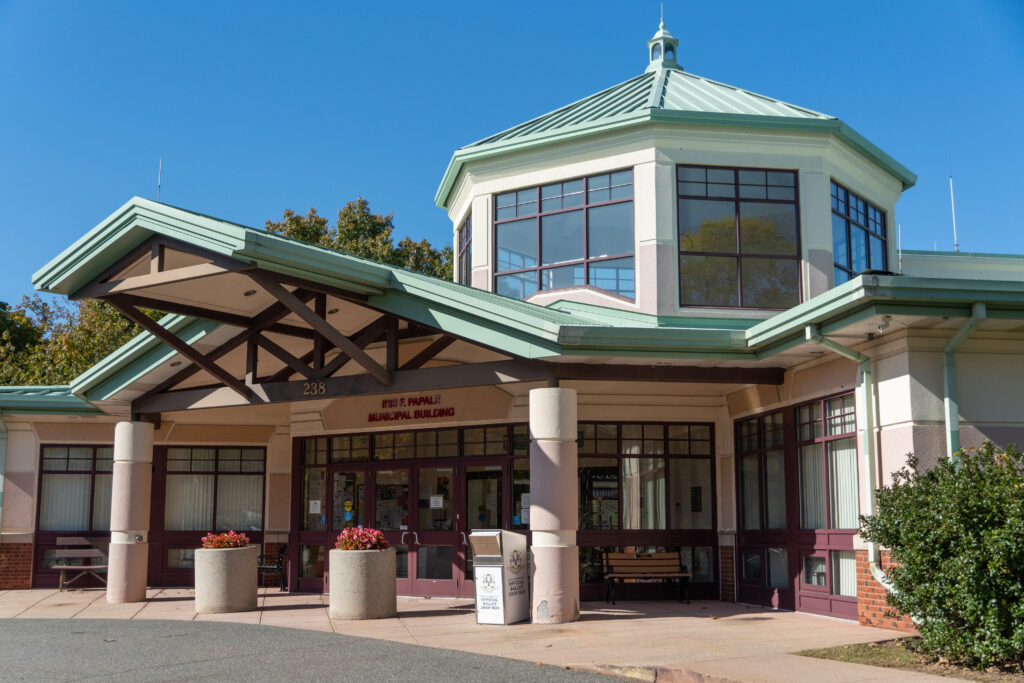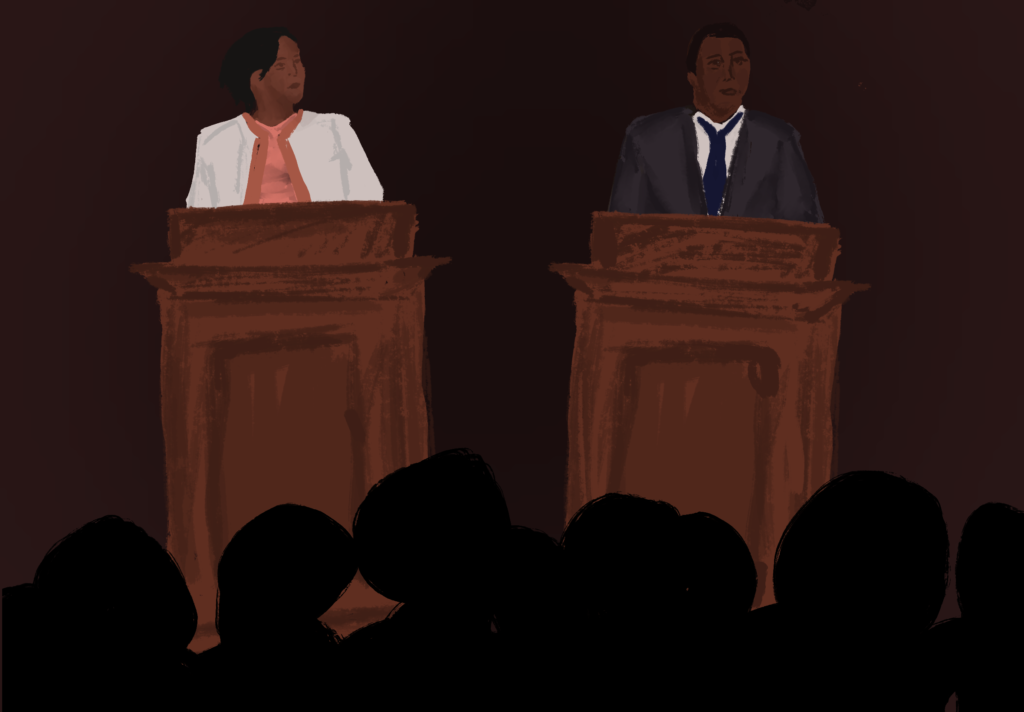
Photo Courtesy of CHS
In honor of this year’s Black History Month, organizations across Connecticut are hosting events to celebrate, reflect on, and teach about the Black Identity. This year’s Black History Month theme, as announced by the Association for the Study of African American Life and History, is “Black Family: Representation, Identity, and Diversity.”
Because of the Covid-19 pandemic, most events are being held virtually through online platforms like Zoom and Facebook Live. This year includes a wide range of events, from art performances to writing workshops to lecture series.
Black History Month has been observed nationwide since 1976. As more Americans become aware of the systemic challenges facing Black Americans, many people are looking to use this year’s Black History Month as an opportunity to educate their communities. According to Ms. Maura Beaudreault, the West Hartford Library Publicity Specialist, Black History Month is an opportunity “to spread the word of the history of oppression within the Black race so that we can create more unity for the present and the future.”
On February 18, the West Hartford Library will feature author Ms. Manju Soni in a free virtual talk titled, “Lessons From Apartheid: How Americans Can Join Across Racial Differences.” Having lived through the Soweto Uprising in South Africa, where hundreds of Black students were massacred by police, Ms. Soni plans to draw parallels between the uprising and America’s own ties to racism. She also hopes to tie in the recent Black Lives Matter protests that have led many Americans to, as the program description states, “question their own beliefs and long-held assumptions about race and privilege in America.” Through the event, Ms. Beaudreault said that the library hopes “to showcase more diversity within the community and to highlight Black history Month.”
Even if you don’t live near the Hartford area, chances are your local library is hosting Black History Month events as well. The Ridgefield Library co-sponsored an art lecture on February 7 about the evolution of African American art in the past century as part of their ARTalk series with the Ridgefield Guild of Artists. In Southeastern Connecticut, the Public Library of New London plans on using Canopy for their public movie screening of I Am Not Your Negro next Thursday. Lastly, the New Haven Public Library helped to present a five-day show about stepping led by dance company Step Afrika!, which ended on February 5. They are also currently in the middle of a four-part African cuisine series called “Pan-African Kitchen Lab,” which occurs every Wednesday afternoon over Zoom.
Non-profit organizations are also participating in celebrations, including the Hartford Yard Goats Foundation, which is an organization that supports the local youth community through various social events and educational opportunities. The foundation is hosting a virtual panel called “The Impact of Racism” to discuss the personal challenges caused by systemic racism. Panelists include member of the National Association for the Advancement of Colored People’s National Board of Directors Scot X. Esdaile, retired Major League Baseball player and sports analyst Doug Glanville, and Vice President for Intercollegiate Athletics and Recreation at Bowie State University Clyde McDoughty Jr.
The foundation also plans to use this event to highlight historic Black athletes, namely those who faced discrimination while playing at Historically Black Colleges & Universities and Negro League Baseball.
“With the backdrop of systemic racism now highlighted in our everyday lives, it was essential to use our platform to foster the conversation while hopefully encouraging others to do the same,” said Ms. Tiffany Young, the Executive Director of the Hartford Yard Goats Foundation. Through the joint efforts of the Hartford Yard Goats Foundation and Yard Goats Management, Black athletes and those in the sports’ industry at large were contacted to share their experiences.
“This is the first event of its kind hosted by the foundation,” said Ms. Young. “The hope is to continue creatively highlighting the many contributions of Blacks in both baseball and our society at large.” Attendees can register for the event on the Hartford Yard Goats Foundation website, which will take place as a Zoom Webinar. The event will also be livestreamed on Facebook Live.
The Connecticut Historical Society (CHS), in Hartford, has hosted a variety of Black History Month events in previous years. On February 24, it will organize a virtual talk titled, “No Haven: Civil Rights, Black Power, and Black Panthers in New Haven.” Led by Dr. Yohuru Williams, the Founding Director of the Racial Justice Initiative at the University of St. Thomas, the event will “focus on national attention on Black militancy in Connecticut at the end of the 1960s,” according to Ms. Natalie Belanger, the Adult Programs Manager for the event. Specifically, Dr. Williams will examine the New Haven Black Panther Trials in 1970, where members of the Black Panther Party were prosecuted in connection to the murder of teenager Alex Rackley.
To complement the event, the CHS has acquired archival material about the Black Panthers, including posters, protest photos, and copies of the organization’s newspaper — The Black Panther. “Many people in CT tend to think of civil rights protests as something that happened in Southern states. But the Black Panther trials are a good opportunity to look at the specific problems of racism and inequality that affected the North,” Ms. Belanger said.
Besides this talk, the CHS has also prepared two Civil Rights Movement exhibitions that will be displayed in their galleries at Hartford. One exhibit is titled the “Connecticut Freedom Workers: Remembering the Civil Rights Movement,” which showcases Connecticut young adults and teens who fought for equality. The other exhibit, “Freedom Journey 1965: Photographs of the Selma to Montgomery March by Stephen Somerstein,” was organized by the New-York Historical Society.
Connecticut’s universities are also taking time to honor the heritages of their Black community members. Southern Connecticut State University’s Multicultural Center is helping to lead campus efforts through organizing conversations about white supremacy and Black Lives Matter, a luncheon to learn about and experience Black cuisine and music, and even a Jeopardy tournament focusing on prominent Black figures in history. Different organizations at University of Connecticut have come up with their own event ideas too. UConn’s African American Cultural Center (AACC) started the month with their annual Black History Month Opening Ceremony with keynote speaker Patrisse Cullors while the Undergraduate Student Government at UConn is hosting a speaker series focusing on Black identity and experience.
When asked about the pandemic’s impacts on event planning, Ms. Beaudreault explained, “At first, the pandemic crushed our programming. However within a few months, our programs were up and running again with the same program numbers as before the pandemic.”
The CHS encountered similar challenges. “The idea was to have [Dr. Williams] come to the CHS to give the talk in person, but the pandemic happened, and we put our plans on hold. Like many museums, we’ve moved all our events online. We were finally able to agree on a new date for a virtual event for this February,” Ms. Belanger said.
Though Black History Month will be ending in two weeks time, “it’s important to celebrate the history of Blacks and their continual contributions, not just in February, but throughout the year,” said Ms. Young.




